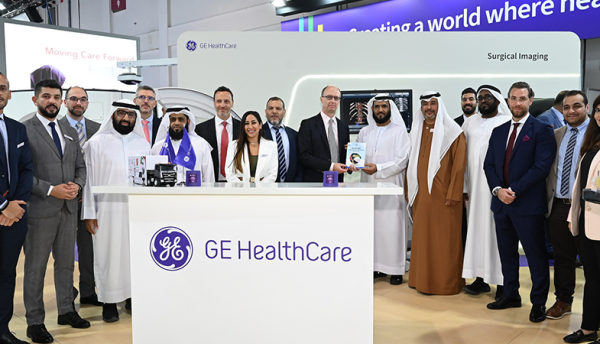GE HealthCare, a leading global medical technology and digital solutions innovator, has announced a partnership with diverse health and humanitarian organisations in the UAE to launch a first-of-its-kind mobile cardiac catheterisation lab in the Middle East aimed at providing vital and timely assistance to heart patients in need.
The state-of-the-art self-contained mobile Cath Lab unit will enhance patient access to high-quality cardiac care through free-of-cost diagnostic and minimally invasive tests and procedures for patients in underserved areas of the country.
With more than half of UAE residents being affected by heart disease during their lifetime, the fully-equipped lab will be pivotal in reducing the significant health burden of cardiovascular disease (CVD) and non-communicable diseases (NCD) in line with the UAE’s strategic national development priorities.
GE Healthcare has partnered with the Dar Al Ber Society, an organisation that aims to establish a culture of volunteering and humanitarian work in the fields of health, education and environment, and the Emirates Resuscitation Council, an organisation striving to improve cardiovascular health through education, research and quality patient care. The partnership underscores the power of multi-sectoral collaboration and social responsibility in addressing the nation’s critical healthcare needs.
Ehab Zawaideh, General Manager for the Middle East, GE HealthCare, said: “The launch of the region’s first mobile Cath Lab unit, in partnership with some of the leading humanitarian organisations in the UAE, reflects our shared vision of helping patients in the UAE win their battles against cardiovascular disease through advanced diagnostic solutions and quality treatment. We look forward to extending our support to improve the healthcare landscape of the broader Middle East and significantly reduce CVD-related mortality rates in the region.”
Click below to share this article

